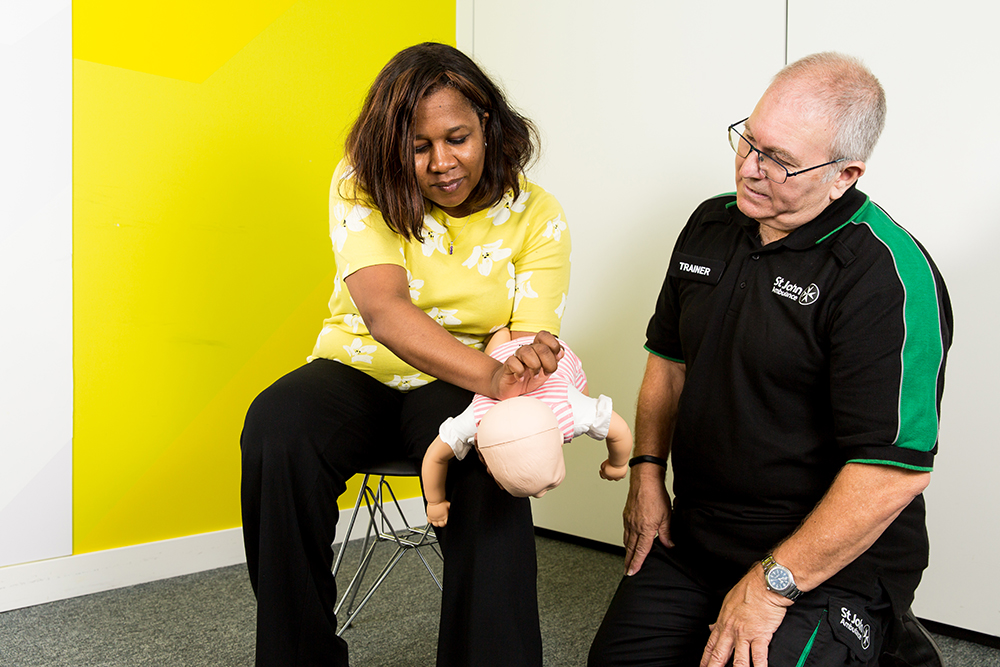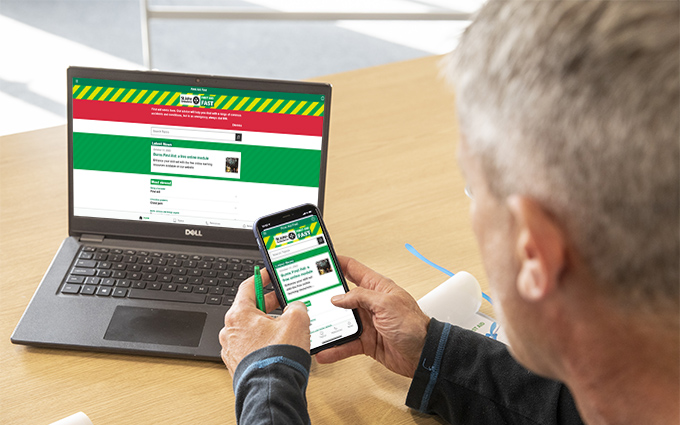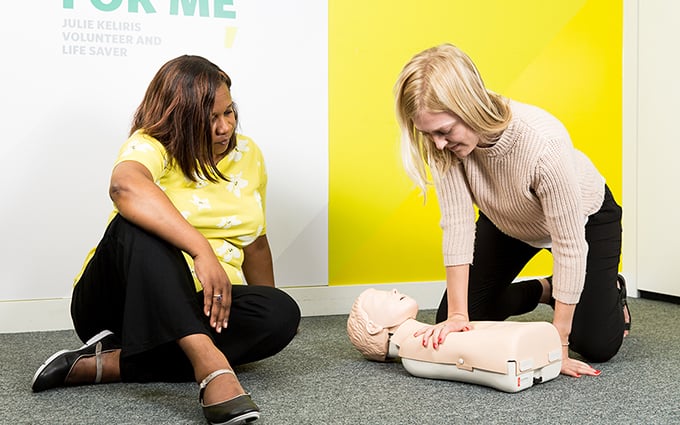This course runs in two parts, in order to be fully qualified you must ensure both the online and face-to-face part of the course are completed.
The online section of this course must be completed before attending the face-to-face section.
Part 1: Online
This part of the course is self-directed and is expected to take a day to complete. You can complete the modules at your own pace in your own environment providing you the flexibility you need. The online training must be completed within the 6 weeks prior to your face to face training.
Part 2: Face-to-face
During this day you will be in a small group with fellow blended course mates. The day will be led by a specialist trainer who will teach you about the essential lifesaving skills required for your qualification. Throughout the day you will take part in small group activities, practicing essential lifesaving skills and have the chance to ask your trainer any questions. You will also complete a small number of practical and written assessments, this will include assessment on your online training topics. Please note that any group or practical activities will take place with social distancing measures in place.
Who should attend?
This course is for people working with young children and those working towards an early years educator qualification. This includes:
- people working in day nurseries
- people working in private nursery schools
- people working in pre-schools
- people working in before and after school clubs for children in the early years age group
- childminders
- carers of children at home.
Delegates aged 16 or older can attend this course.
Candidates need a basic command of English (defined as Level 2). While we are often able to provide support to people who do not have English as a first language, our ability to do so is limited by the time available and the number of people who require assistance. We may be able to make special arrangements if requested in advance. Please contact us if you need any guidance.
Booking for large numbers of students? Have a look at on-site training options.
Read FAQs about our online training platform
Read the minimum system requirements
Insurance Included! Practice First Aid Anywhere, Anytime.
Your covered. Unlike others, our training includes insurance to use your skills beyond the workplace - giving you the confidence to help whenever it's needed, and in the standards of our first aid training delivery.
Peace of Mind. Everywhere you go
Find out more
Reviews






